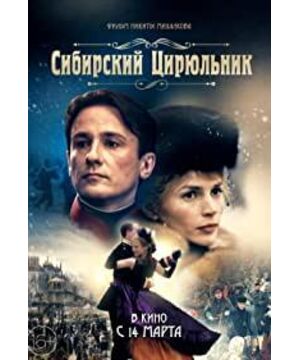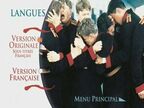When I read "The Past Is Not Like Smoke" by Zhang Yihe, I often sighed at the passage of the indefinable intellectual life tradition. Looking at Zhang Yihe's writing about Shi Yuliang's emphasis on life, "A towel can only be used for two weeks at most, and it can't be used to become hard." For this reason, she specially sent two packs of towels to Zhang Bojun's family; Shi Yuliang wears specially prepared "white pajamas and nightcaps", and also asks her husband Lu Diandong to use silk curtains to turn the seat into a small and quiet bedroom; when participating in foreign affairs activities, because her husband is not present, she insists on refusing to take pictures with foreign friends. , "He didn't come today. Without him or if he was present but not invited, I wouldn't take pictures with anyone by myself"... Such exquisite details of life, coupled with the knowledge that is also full of personality and independent endowment, raise People will naturally make those around them feel tolerant, persistent and respectful.
And such a distant and elegant tradition, I also seem to feel a little resonance in "The Barber of Siberia". The aristocratic and military features of Russia under the tsarist regime of the nineteenth century, as well as the distant appearance of Siberia, are as if they had been processed by a diffuser, and are presented exceptionally clearly in the image.
You see, as non-commissioned officers, they uphold the most ancient education of loyalty. "I love Russia, the country, the nation, the tsar, my parents, and Luya." Following the order was like a mechanical clockwork, a gong and drum sounded, thump, thump, and the hour-long Heli did not hesitate. At the military review ceremony, standing like a pine, walking vigorously, for the motherland, for His Majesty the emperor, and throwing the cup as proof. But such loyalty is by no means foolish loyalty, nor is it a rigid, alienated, impersonal loyalty. This group of non-commissioned officers is full of vigor and vitality. So we'll see a group of them leave the dumb Tolstoy in Jenny's car, trying to see the jokes that come out of his encounter with the woman, but they end up holding the drunk Tolstoy, dragging He prevaricates and walks through the line. You can see them playing together as they wax the floor, laughing and cursing together; fighting for women; covering up for the fault of their comrades; screaming and screaming together, like a group of demons dancing, even when Tolstoy is pregnant with an injury. When his heart fled the theater in the rain, it was these sergeants who risked their lives to chase out and drag Tolstoy back into the theater.
The most touching thing was that Tolstoy was escorted onto a train bound for Siberia. Friends in the school of non-commissioned officers sang and performed passages from the opera, sending the exiled Tolstoy away. The workshop was filled with smoke, which not only made the officers and students burst into tears, but also brought tears to the eyes of the audience. There are so many different ways to say goodbye in ancient and modern times. Although it is colorful, it is difficult to match this majestic and tragic. I'm afraid that thousands of years ago, Gao Jianli and Jing Ke were just parting ways to strike Zhu Zhu by the edge of Yishui. "The prince and the guests who knew about it were all dressed in white as a gift. On the top of Yishui, the ancestors took the way, Gao Jianli and Jianzhu, Jing Ke sang in harmony, and all the scholars were weeping and weeping for the sound of the change. In front of the song, he said: 'The wind is sluggish and the water is cold, and the strong men will never return once they go away!' And then again, the voices of the feathers are loud, and the soldiers are all stunned, and they have all the crowns of their fingers." There is such a "How can you say that you have no clothes? The friendship of "being in the same robe with my son" is the quality of loyalty, so why worry about its decay in the deep still water?
Look at the noble girls who are sitting in the boudoir to be married and slowly driving past the gate of the military school. On the other side of the Weilian curtain is how complicated and affectionate they are. Every time I stare secretly, I may risk the reproach of appearance and etiquette, but I can't suppress the restless heart. In contrast, the non-commissioned officers who whistle and perform all kinds of funny actions by the carriage and the bars are so wild and energetic, maybe they know all the injustice and inhumanity under such a ban, but After all, they were helpless every time they approached cautiously. Just like the sound of the wind in the dark night, although it is sniped by thorns and fences, it can always pass through silently and disappear without a ripple. The most gratifying thing is that they danced with the woman they liked on the waxed floor. They were polite and upright, but they were no longer cunning. As soon as you turn around, step on your feet, and look at each other, you may be able to read a lot. In an instant, the great defense between men and women is invisible. The distance between the two souls is only separated by a thin piece of clothing, but they have not crossed any line of defense. bold. So light and humorous, so vigorous and affectionate, people can't help but think of Audrey Hepburn's waltz at the Greek ambassador's reception in "My Fair Lady", and think of the grace and luxury of court life; The shadow of Al Pacino was looking for the light of his soul in the dance steps, and these sergeants, their nervous and easily jealous hearts, were a little more trembling and uneasy.
You can see how romantic Radloff's proposal is, as a general, it is almost comical and pedantic. I saw that he first took out his father's photo from the folder, gave a brief introduction, then took out his mother's photo, spread it on the table, turned around, picked up the paper that had already been transcribed, and handed it to Tolstoy, Sitting very seriously at the piano beside him, he played Mozart's tunes leisurely and drunkenly. Maybe you can't understand that as a general with such power, he still has such a humble and pious heart for love; maybe you will lament his ignorance and ridicule him as an old unmarried young man for being so pedantic and so old with flowers and poems The old way to win a woman's heart, instead of directly repaying the other party's desire with power; perhaps you can't understand that this general who came from the army and was the principal of a military school, but did not even know the Macedonian emperor Alexander the Great, would choose With romantic poems and music, he has carefully designed a formal and serious marriage proposal ceremony for himself, and it is even more difficult to imagine that he will play a good piano, the sound of which is like the voice of his heart. But you must know that intelligence, like Pushkin, also duels to death because of love. If you can understand Pushkin, you must also understand Radlov under such a tradition. The poems about the courtship of the generals are not very well written, and they are not comparable to the love poems such as Pushkin's "To Kane", but sentences such as "I have been baptized by war, but for the first time let my life fall in love" are still moving. add.
And you look at the carnival of people on Shrove, drinking without regard for posture. Fireworks are falling. The men were topless on the frozen lake, fisted and kicked each other, their faces were flushed, blood was flowing, and they were hooked. The wild side is accompanied by a brisk band. These Russians drink, overeat, fight in groups, and indulge in vocal music, just to release the most primitive desires of life, so as to obtain God's forgiveness. "This kind of Shrove, I don't know how many years it has lasted, it seems like this." If you are not unfamiliar with this tradition, which has been passed down from generation to generation, it is not difficult to understand why Bakhtin's carnival theory was born in Russia instead of Elsewhere, it is not difficult to understand that although the research object of carnival theory itself is not taken from the Russian mainland, but the American continent, but to grasp the essence of carnival ecstasy, freedom and joy, Bakhtin, who was born in Russia, must have learned from ancient traditions. Have a lesson, right?
Of course, Mikhalkov's description of the above Yoshimitsu Kataha is somewhat suspicious of his motherland. The excessively glorified tsarism makes people have to question the beauty in the film, and it is said that the film has also been attacked and questioned. Perhaps as an epic film, it should be responsible to history, and should notarize the beauty and ugliness of a history with a sense of morality. But in my opinion, as a masterpiece of nostalgia, it is first and foremost a call of honor for Russians and Siberians, aside from the political tsarism, the Russian qualities and traditions displayed in it make people feel So nostalgic and fascinated that I will never forget, those fortitude, courage, kindness, romance, wildness, and boldness have been salvaged from the old time, wiped away the dust of revolution, and flashing above are the invisible things of the millennium. Light. What's more, the courage to face and describe the beauty of the tsarist system is also indispensable, right?
Tolstoy was finally exiled to the frozen world of Siberia. In fact, this is nothing more than throwing him from one tradition of aristocracy, royalty, and the military, and placing him in another, more historical and wilder tradition. Fascinating Siberia, the endless forests and snowfields that are no longer in the geographical picture, nourishes its icy land with every great suffering soul. From the Decembrists to Dostoevsky, from Chernyshevsky to Lenin, and even the defeated White Army after the last October Revolution, they stumbled across this vast land, leaving behind It is not only the loneliness and desolation of the ice and snow, but also the unclaimed corpses, but in the end, they who were exiled or forced to flee once used their soul and conscience, stubbornness and excellence, and even hard idealism, Reshape the character of Siberian humanity.
So it is not difficult to understand that Tolstoy, who finally sensed the arrival of Jenny, although he ran all the way through the mountains and forests, but in the end, when he saw it, he stopped, took out a cigarette, lit a cigarette, looked up and waited. Yandi watched the woman he once loved unforgettable leave. It's not difficult to understand why Luya only hides in the corner of the door with her tearful child, and refuses Jenny, who is late after 10, to disturb their poor life. Maybe it's because the passion has subsided, or because of the inertia of life, but I believe that this is caused by Siberia's shaping and carving of Tolstoy's spirit and personality. He doesn't know how to climb mountains and walk in the snowy sea, but after the hardships and enslavement in life, he has more reason and thinking than before. These reason and thinking are like beards on his face to check and balance the impulses in his heart, he no longer needs to. Only by picking up the violin and drawing the bow can satisfy the inner thirst and anger. A simple and affectionate look from afar and the recollection of stopping may be enough to explain the waiting and suffering in the long period of time. Perhaps, as in Buddhism, a moment is eternity.
Russia around 1885, like the barber who finally invaded Siberia, suffered shocks and overturns. The traditions and customs of the nation were destined to disappear in the panic and haste in the age of mechanical reproduction, but for director Michal For Kov, such a short break is just one of the throes of historical transformation, and moreover, the elegant tradition has never disappeared because of the passage of time and the shifting of stars. On the contrary, as an invisible force, it is resurrected with a more tenacious vitality. , and even brought this great and persistent tradition to the land they once resented and hated, the United States on the other side of the ocean. Russian spirit and traditions have never been more than an imagined nostalgia.
From the beginning of the movie, little Andrei refused to say "Mozart is a piece of shit", and the spirit and tradition of Russia began to revive implicitly, and after nearly three hours of backtracking and statements, the chief finally gave in to little Andre The stubbornness, standing on the edge of the cliff and confessing loudly to all the soldiers, the greatness of Mozart is tantamount to the victory of the Russian spirit and tradition - in the face of everyone jokingly giving up dignity and facts, the unique stubbornness and persistence of the Russians still remain All humiliation can be despised.
At the end of the movie, we watched little Andre with a bright smile on his face, running against the sunset, as cheerful as his father met Jenny on the train back then. During the run, the faces of the father and son almost overlapped. Reflected in the sunset like tea stains, the sharp edges and corners seem to tell us that ancient Russia will return to the traditional elegance and glory together with the memory.
Although this return has become a bit more variegated.
View more about The Barber of Siberia reviews











